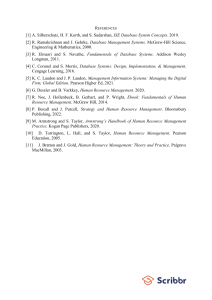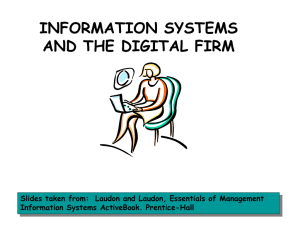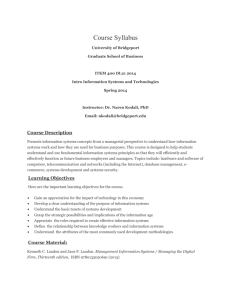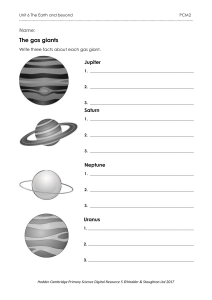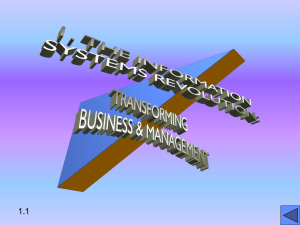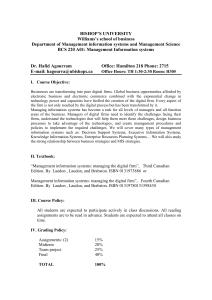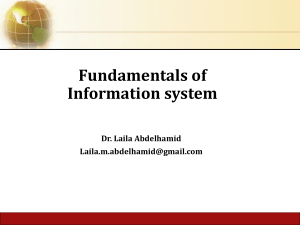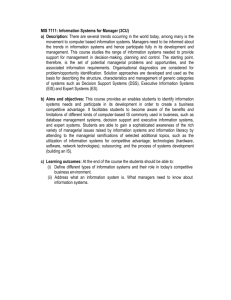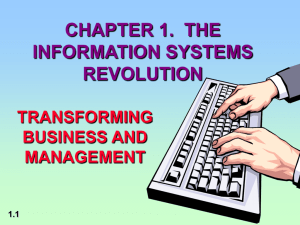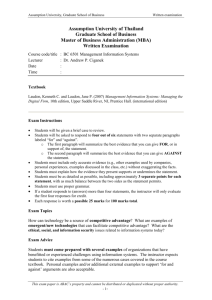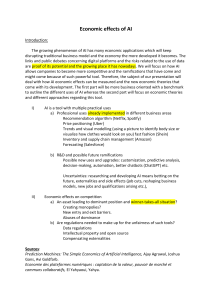IOP 1201 INTRODUCTION TO INFORMATION TECHNOLOGY AND
advertisement
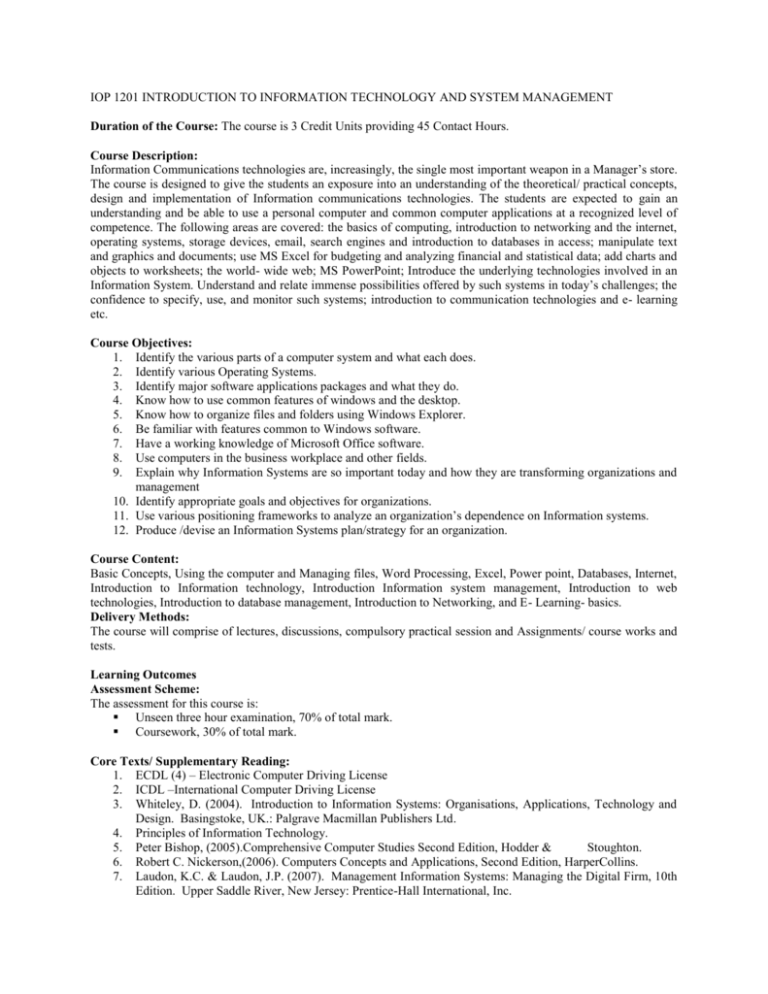
IOP 1201 INTRODUCTION TO INFORMATION TECHNOLOGY AND SYSTEM MANAGEMENT Duration of the Course: The course is 3 Credit Units providing 45 Contact Hours. Course Description: Information Communications technologies are, increasingly, the single most important weapon in a Manager’s store. The course is designed to give the students an exposure into an understanding of the theoretical/ practical concepts, design and implementation of Information communications technologies. The students are expected to gain an understanding and be able to use a personal computer and common computer applications at a recognized level of competence. The following areas are covered: the basics of computing, introduction to networking and the internet, operating systems, storage devices, email, search engines and introduction to databases in access; manipulate text and graphics and documents; use MS Excel for budgeting and analyzing financial and statistical data; add charts and objects to worksheets; the world- wide web; MS PowerPoint; Introduce the underlying technologies involved in an Information System. Understand and relate immense possibilities offered by such systems in today’s challenges; the confidence to specify, use, and monitor such systems; introduction to communication technologies and e- learning etc. Course Objectives: 1. Identify the various parts of a computer system and what each does. 2. Identify various Operating Systems. 3. Identify major software applications packages and what they do. 4. Know how to use common features of windows and the desktop. 5. Know how to organize files and folders using Windows Explorer. 6. Be familiar with features common to Windows software. 7. Have a working knowledge of Microsoft Office software. 8. Use computers in the business workplace and other fields. 9. Explain why Information Systems are so important today and how they are transforming organizations and management 10. Identify appropriate goals and objectives for organizations. 11. Use various positioning frameworks to analyze an organization’s dependence on Information systems. 12. Produce /devise an Information Systems plan/strategy for an organization. Course Content: Basic Concepts, Using the computer and Managing files, Word Processing, Excel, Power point, Databases, Internet, Introduction to Information technology, Introduction Information system management, Introduction to web technologies, Introduction to database management, Introduction to Networking, and E- Learning- basics. Delivery Methods: The course will comprise of lectures, discussions, compulsory practical session and Assignments/ course works and tests. Learning Outcomes Assessment Scheme: The assessment for this course is: Unseen three hour examination, 70% of total mark. Coursework, 30% of total mark. Core Texts/ Supplementary Reading: 1. ECDL (4) – Electronic Computer Driving License 2. ICDL –International Computer Driving License 3. Whiteley, D. (2004). Introduction to Information Systems: Organisations, Applications, Technology and Design. Basingstoke, UK.: Palgrave Macmillan Publishers Ltd. 4. Principles of Information Technology. 5. Peter Bishop, (2005).Comprehensive Computer Studies Second Edition, Hodder & Stoughton. 6. Robert C. Nickerson,(2006). Computers Concepts and Applications, Second Edition, HarperCollins. 7. Laudon, K.C. & Laudon, J.P. (2007). Management Information Systems: Managing the Digital Firm, 10th Edition. Upper Saddle River, New Jersey: Prentice-Hall International, Inc. 8. Campbell D.J., (1997). Organisations and the Business Environment, 1997,Butterworth-Heinemann

